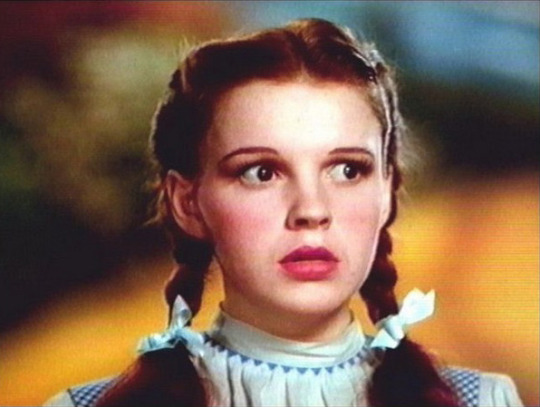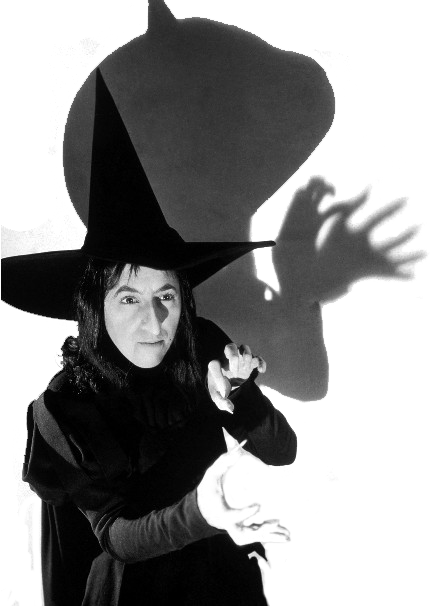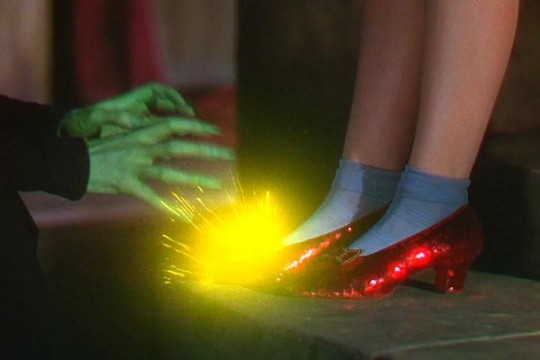Hell in Oz by Richard Hell
By Yasmina Tawil

Screen Slate is a website and daily email service that curates a listing, sometimes with commentary, of films playing at repertory theaters, museums and galleries, festivals, film clubs, etc., in New York City. In other words, it’s not about commercial first-run movies, but about “moving image culture,” as the site sweetly puts it. “It does not feature advertising, and all recommendations are presented in earnest,” it promises. I am a subscriber (it’s free), and an awed supporter. Last year, after five years of the site’s daily operation, all volunteer, on no budget, Jon Dieringer, its super-heroic and mild founder and chief operator, held a successful Kickstarter campaign raising over $20,000 to expand services. He invited me to take part by providing a brief introduction for a film of my choice at a private showing for certain donors. I agreed. The screening was held at the Anthology Film Archive (another friend of Screen Slate) just before Christmas. The movie I chose was The Wizard of Oz. Below is my intro for it (I should mention, to clarify something in the intro, that I brought in four and a half minutes of music to be played, on repeat, in the theater as attendees trickled in: a bootleg rehearsal room recording of Keith Richards on laid back honky tonk piano, and Bobby Keys on sax, performing “Somewhere Over the Rainbow,” with Keith rasping the eight or nine words of the song that he could remember):
I had a surprisingly hard time picking out what movie to screen tonight. I lean towards bleak, usually low-budget, noirish movies. For instance, when I’ve had the chance to introduce screenings before, I’ve chosen Bresson’s The Devil Probably, Welles’s Lady from Shanghai once, and Touch of Evil another time, Robert Aldrich’s great Kiss Me Deadly, Wong Kar Wai’s 2046… Like that. Also it would be logical to pick a movie that’s not too commonly seen. But it’s Christmas—or whichever festive winter holiday—and I knew both that the Screen Slate crowd would already be familiar with anything I picked, and that everything’s available online now anyway—there aren’t any obscure movies anymore—so I decided to take the opposite tack and pick one of the happiest, most widely seen and popular movies ever. Big budget too. It doesn’t show up in celluloid 35mm in theaters often, though, and it is a masterpiece and I’ve always loved it.

The first thing to be said about The Wizard of Oz, of course, is that it’s a quintessential classic-era Hollywood movie. In fact it was made in the year, 1939, that’s thought of as being the peak moment of Hollywood studio achievement, in the days when everybody went to the movies all the time and the studios were like assembly-line factories, each with its own masses of artists and craftsmen under exclusive contract, churning out far more movies for theatrical release than studios do now. Among the other movies released in 1939 were The Hunchback of Notre Dame, Mr. Smith Goes to Washington, Ninotchka, Only Angels Have Wings, Stagecoach (along with two other Ford movies: Drums Along the Mohawk, and Young Mr. Lincoln), The Women, Wuthering Heights, You Can’t Cheat an Honest Man, and Gone with the Wind. In fact Gone with the Wind shared two directors with the Wizard of Oz, George Cukor and Victor Fleming. Both films were worked on by three or four directors; they were not auteur films. They’re like medieval cathedrals, created by whole societies, even cultures, of craftspeople. Movies in those days were also mostly made on sets. Everything is artificial. I love real locations but when you look at those big budget ’30s Hollywood films, the sets are pretty seductive, too. The way everything is a little stylized, even what’s supposed to be most real (like Kansas in this movie). They’re like Disneyland. Which can be creepy, but even then is kind of fascinating. In The Wizard of Oz, it’s all good.
Because, of course, Oz is what they called a fantasy film, as well as a musical, and it was mainly intended for children. The main research I did for this intro was to read the original Frank Baum Oz book, which I’d never done before. That was interesting. It was the first time I’d read a children’s book in a while, and it did summon the experience of reading a story, or having it read to you, as a kid, when so many of the stories are about adventures in outlandish imaginary worlds, and how enthralling that can be for a kid. The actual world we live in is just as crazy and confusing and scary and mysterious as any imaginary world, but adults are more or less accustomed to it so don’t notice the outrageousness as much, whereas for kids, the so called “real” world, the adult world, is still like that. The real world could just as well be Oz. And, to stay a little pedantic, maybe you can learn something about navigating it from a book or a movie, is probably partly what makes the kids’ fantasy stories so compelling.

And the movie does have a lesson, a moral. At first, after reading the book, when I re-watched the movie, that annoyed me, that the movie had a moral, because the book does not have a moral, it’s just an adventure, more or less. It’s about a little girl who gets swept away from Kansas by a cyclone, to be deposited in a completely unfamiliar and strange other world, and then simply wants to find her way back home again, a pretty natural impulse. There are scary parts but she gets through with the help of some new friends and it’s all interesting and comforting. I remembered the movie as being magically perfect—an example, like say Casablanca, of everything falling into place to make for perfection in the collaborative studio system. But when I re-watched the film after reading the book, I was kind of disappointed to see how the film, which is largely faithful to the book, departed from it in two important, kind of cop-out, cliché, Hollywood ways: first they turned the whole Oz sequence into a dream, the ultimate narrative cop-out, though of course that’s only revealed at the end, and, second, they gave the story an explicit, seemingly corny moral, recited by Dorothy just before she gets returned to Kansas. She says she’s learned that, “If I ever go looking for my heart’s desire again, I won’t look any further than my own back yard, because if it isn’t there, I never really lost it to begin with.” Which, to the extent that it makes any sense at all, at first sounds really conservative and reactionary, namely that you shouldn’t ever go searching for something exciting or better, but just stay at home where it’s safe. The pretext for that moral, the running-away-in-search-of-something plot point, does not exist in the book. But in the movie Dorothy decides to run away from home to escape Miss Gulch’s witchy Toto-oppression, and Aunt Em’s and Uncle Henry’s acquiescence in it, and to see the wide world. Indirectly, this is what results in her being carried off by the cyclone (because it makes her late getting back to the storm cellar). In the book, there is no Miss Gulch (and no poignant farm hands or mysterious Professor Marvel or anyone else except Aunt Em and Uncle Henry), and no running away: you just get the setup of the poor three-person small farm in grey Kansas, the dog which Dorothy dotes on, and then the crazy cyclone carrying the girl and the dog to Oz. Oz is real, it’s not a dream, and Dorothy was not unhappy and had no intention of running away from home.
So for a minute I was kind of disappointed, thinking I’d overestimated the movie in memory, where it had seemed to me like a magical flawless jewel. But I recovered. In fact, the dream idea is fun and satisfying, with how the main Oz characters are versions of her Kansas days’ denizens, and how you only get that, really, at the end, when she wakes up from dreamland Oz, because everyone’s a bit disguised in Oz. Furthermore, when I kept thinking about it, the moral is actually good too. It doesn’t have to be seen as all sentimental and reactionary. In the context of how the movie sets her up as running away from home, the moral makes sense, is even enlightened, almost Buddhist. “If I ever go looking for my heart’s desire again, I won’t look any further than my own back yard, because if it isn’t there, I never really lost it to begin with.” Which you could boil down to, “Anything you can lose, you never really had,” in other words that serenity is inner. It’s totally Buddhist. So, I was relieved: the movie actually is a perfect gem that has no author, like the universe! (I actually hate the universe, but I do know better.) Ultimately, though, when all the dust has cleared, on the most careful further consideration, I have to conclude that Dorothy’s supposed lesson, the movie’s moral as presented in that sentence, is meaningless. It simply doesn’t make sense. Which is even more like the universe! So, either way, Oz works.
And I haven’t even mentioned Judy Garland singing “Somewhere Over the Rainbow.” She rivals Keith Richards.


